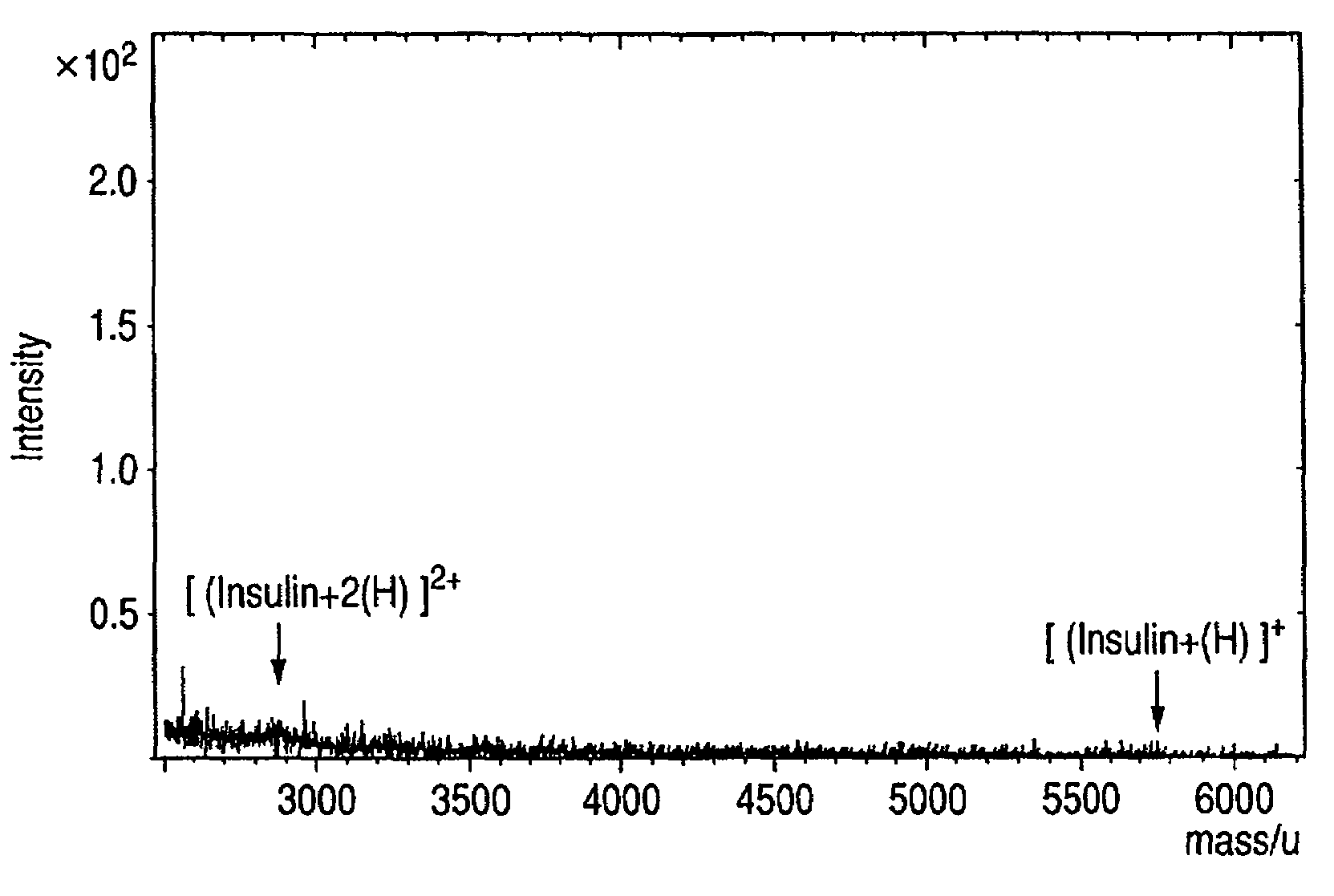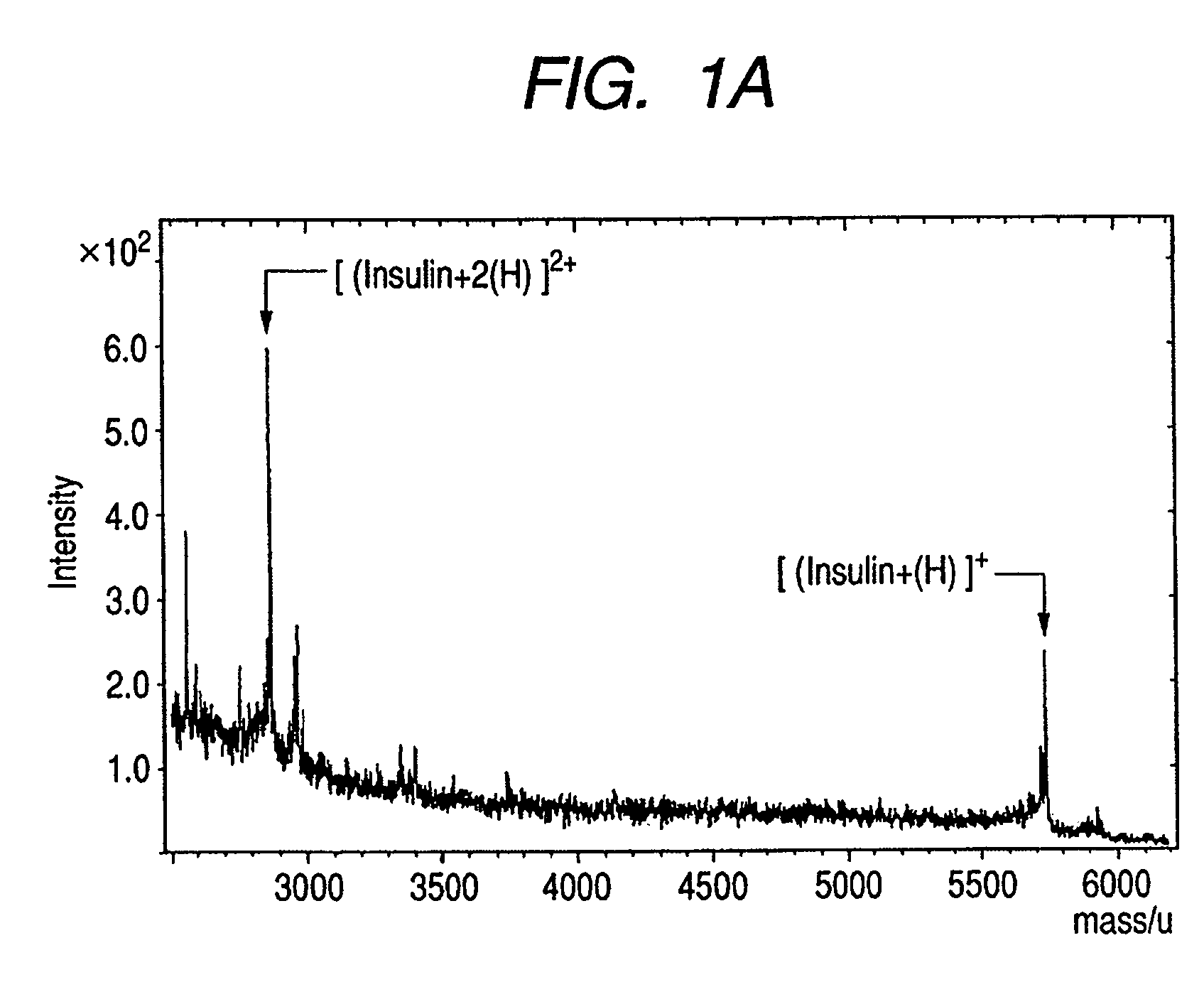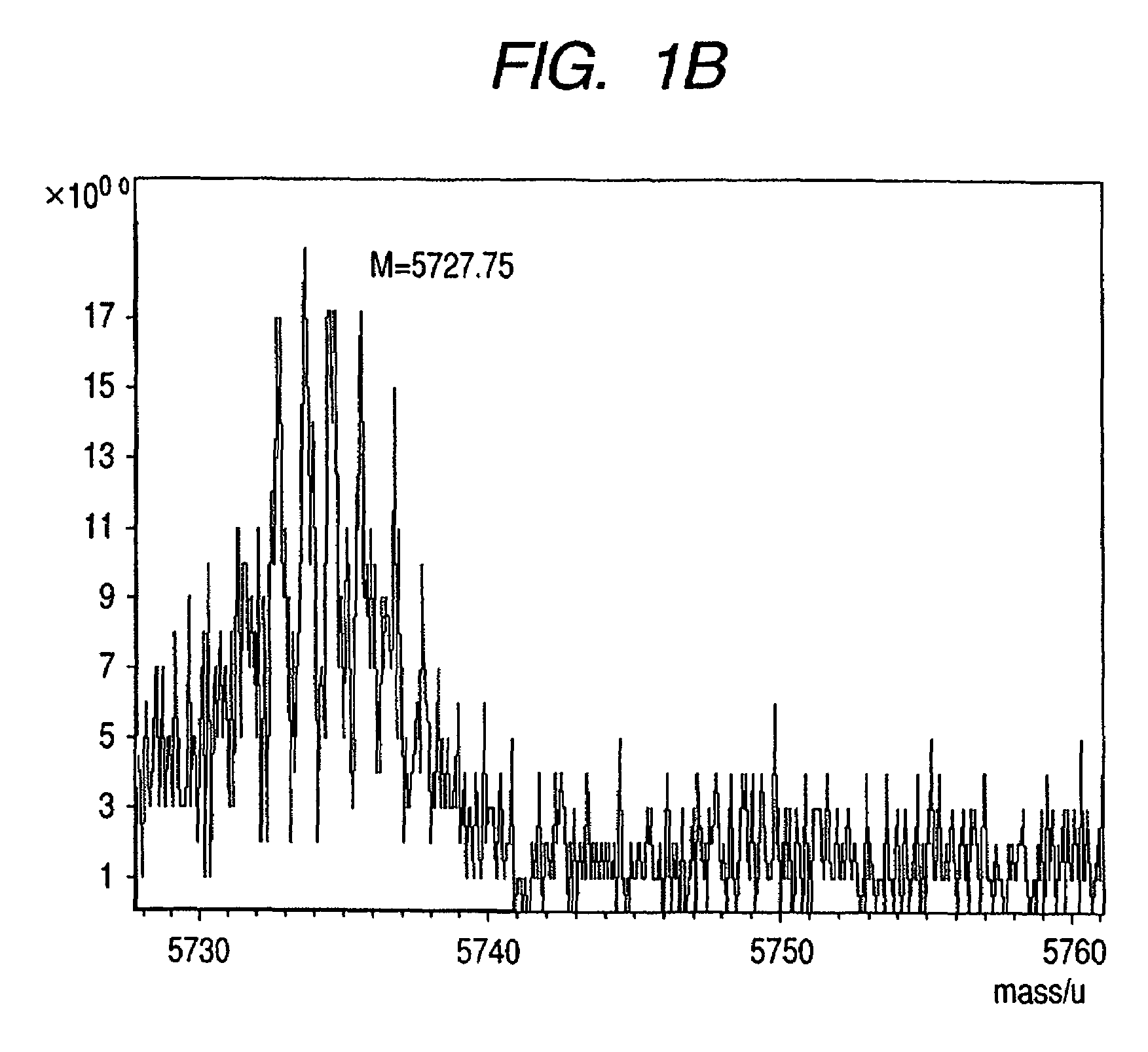In-plane distribution measurement method
a distribution measurement and in-plane technology, applied in the field of in-plane distribution measurement method, can solve the problems of general difficulty in identifying the original structure, inability to directly estimate non-specific adsorption on the tip surface, and limited information
- Summary
- Abstract
- Description
- Claims
- Application Information
AI Technical Summary
Benefits of technology
Problems solved by technology
Method used
Image
Examples
example 1
[0053]Spotting of protein and TFA treatment on Au / Si substrate and TOF-SIMS analysis
[0054]As a substrate, there was used a substrate obtained by washing a silicon (Si) substrate containing no impurities with acetone and deionized water in that order and forming a film (100 nm) thereon with gold (Au). A 10 μM aqueous solution of bovine insulin (C254H377N65O75S6 (the average molecular weight: 5729.60, the mass of a molecule including elements having a highest isotope abundance: 5733.57), hereinafter referred to as insulin) purchased from Sigma Corporation was prepared with deionized water. The aqueous solution was spotted onto the aforementioned Au-coated Si substrate using a micropipetter. The thus-prepared substrate was air-dried, and then a 0.1 mass % trifluoroacetic acid (TFA) aqueous solution was spotted again onto the position where the insulin aqueous solution had been spotted using a micropipetter. The substrate was air-dried and then used for a TOF-SIMS analysis. In the TOF-S...
PUM
 Login to View More
Login to View More Abstract
Description
Claims
Application Information
 Login to View More
Login to View More - R&D
- Intellectual Property
- Life Sciences
- Materials
- Tech Scout
- Unparalleled Data Quality
- Higher Quality Content
- 60% Fewer Hallucinations
Browse by: Latest US Patents, China's latest patents, Technical Efficacy Thesaurus, Application Domain, Technology Topic, Popular Technical Reports.
© 2025 PatSnap. All rights reserved.Legal|Privacy policy|Modern Slavery Act Transparency Statement|Sitemap|About US| Contact US: help@patsnap.com



